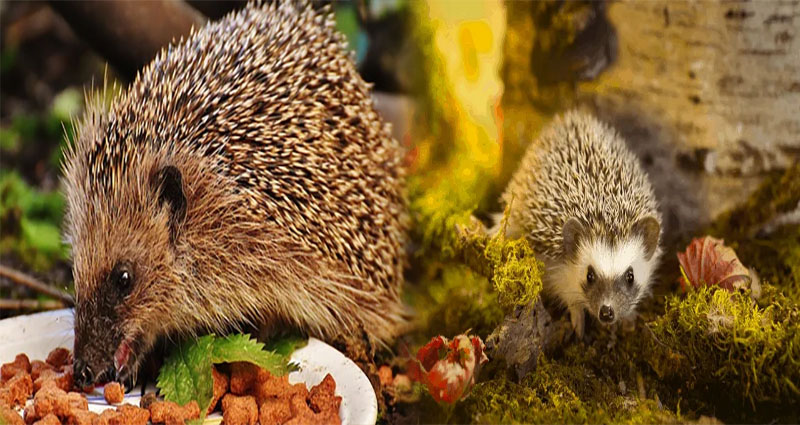If you’re considering bringing a hedgehog into your home as a pet, it’s essential to understand their unique nutritional needs. Providing your hedgehog with a well-balanced diet is crucial for their health, happiness, and longevity. In this comprehensive guide, we will explore the essential nutritional requirements for pet hedgehogs, ensuring you have all the knowledge necessary to take care of your prickly companion.
Understanding Hedgehog Diet in the Wild
Hedgehogs are primarily insectivores in the wild, meaning their diet consists of insects, worms, and other invertebrates. However, as pets, they require a more varied diet to meet their nutritional needs adequately. A balanced diet for a pet hedgehog typically includes high-quality commercial hedgehog food supplemented with fresh foods.
Commercial Hedgehog Food
Commercial hedgehog food provides a convenient and balanced base for your pet’s diet. It usually consists of a mixture of high-quality protein sources, such as poultry, mealworms, and soybean meal, along with other essential nutrients. When choosing commercial hedgehog food, look for brands that have been specifically formulated for hedgehogs and provide a complete and balanced diet.
Fresh Foods for Hedgehogs
While commercial hedgehog food is essential, it should be supplemented with fresh foods to provide variety and additional nutrients. Some suitable fresh foods for hedgehogs include:
1. Insects and Worms
Hedgehogs love live insects, such as crickets, mealworms, and waxworms. These offer essential protein and can be a great source of enrichment for your pet. Ensure that any insects you feed your hedgehog are purchased from a reputable supplier and are not collected from the wild to avoid introducing harmful parasites or chemicals.
2. Fruits and Vegetables
Hedgehogs can also enjoy small amounts of fruits and vegetables. Some suitable options include apples, bananas, berries, carrots, and leafy greens like spinach or kale. Remember to cut the fruits and vegetables into small, bite-sized pieces to make it easier for your hedgehog to consume.
3. Cooked Meat
Occasionally, cooked lean meat can be offered to hedgehogs as a treat. Ensure the meat is free from any seasoning, spices, or excess oil. Chicken, turkey, or lean beef are suitable options.
Water and Hydration
Providing access to clean, fresh water is vital for your hedgehog’s hydration. Use a shallow dish or a water bottle designed for small animals and ensure that it’s cleaned and refilled daily.
Feeding Guidelines
Here are a few essential guidelines to follow when feeding your pet hedgehog:
- Portion Control: Hedgehogs are prone to obesity if overfed. Offer them about 1-2 tablespoons of commercial hedgehog food per day, supplemented with fresh foods. Adjust the quantity according to your hedgehog’s weight and activity level.
- Monitoring Food Intake: Observe your hedgehog’s eating patterns and appetite. If they are consistently leaving food uneaten, you may need to adjust the portion size.
- Feeding Schedule: Hedgehogs are nocturnal, so provide food in the evening or overnight when they are most active. This mimics their natural foraging behavior.
Other Considerations
- Avoid Feeding Human Foods: Hedgehogs have different nutritional requirements than humans, so it’s crucial to avoid sharing your food with them. Many human foods, such as dairy, chocolate, and processed snacks, are unsuitable and can be harmful to hedgehogs.
- Supplements: In some cases, your veterinarian may recommend specific supplements, such as calcium or vitamin D3, based on your hedgehog’s health and dietary needs. Consult with a professional to determine if supplements are necessary.
Understanding and meeting the nutritional requirements of your pet hedgehog is essential to their overall well-being. A balanced diet consisting of high-quality commercial hedgehog food, supplemented with fresh foods like insects, fruits, and vegetables, will provide your hedgehog with the necessary nutrients for a healthy and happy life. Remember to monitor their food intake, provide fresh water, and consult with a veterinarian for any specific dietary concerns. By providing proper nutrition, you’ll be ensuring that your pet hedgehog thrives in your care.












